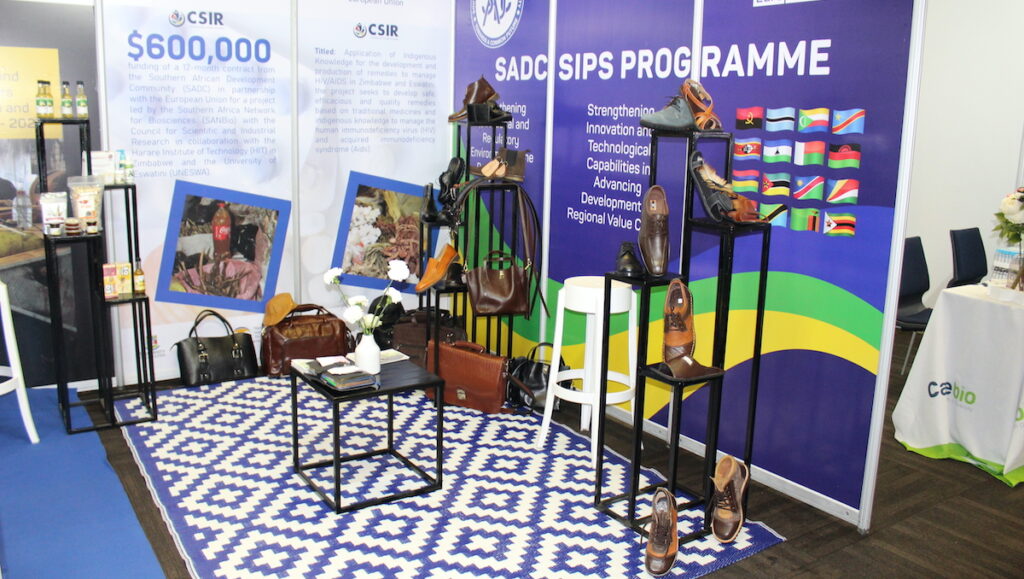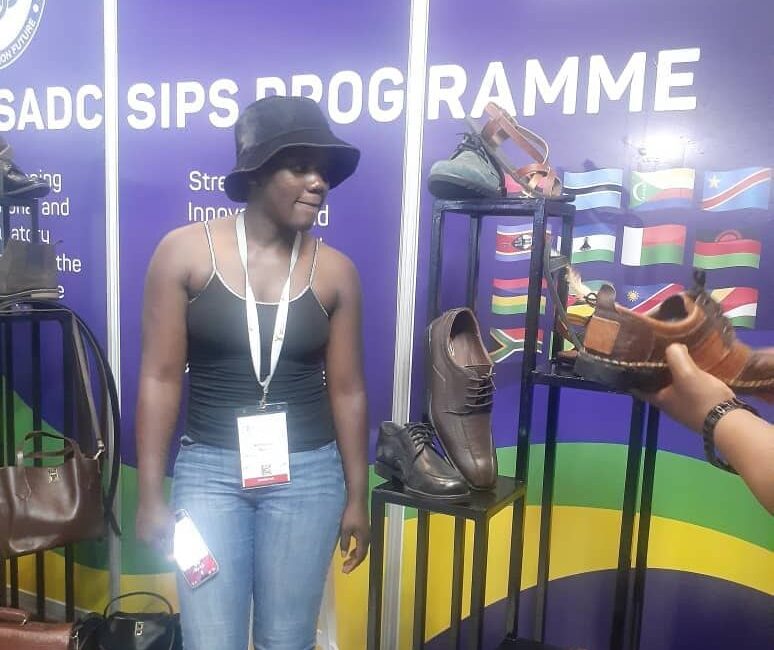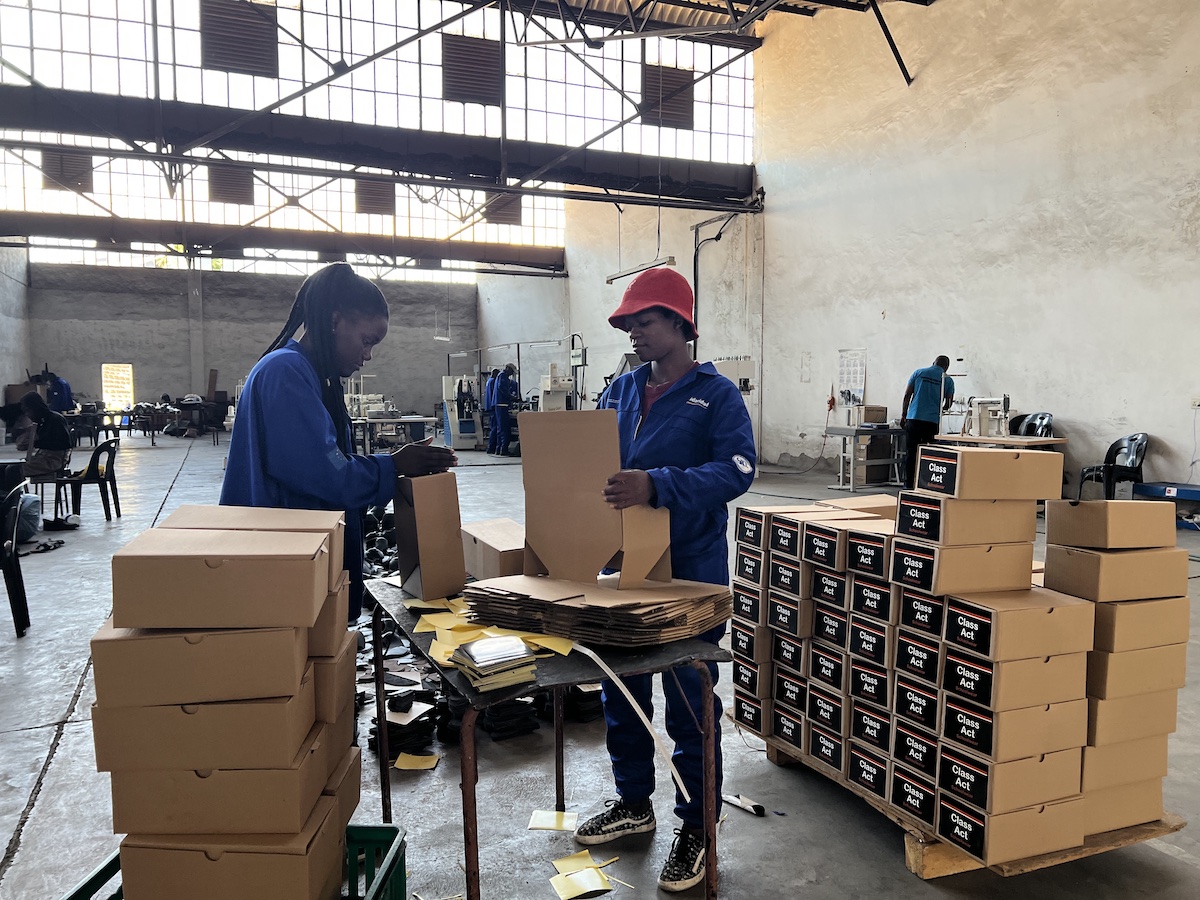Nomazulu Mguni works at her craft in the Bulawayo Leather Cluster in Tanzania.
Each year, the BIO Africa Convention showcases groundbreaking ideas and collaborative opportunities in biotechnology. In 2023, Solidaridad joined with its partner, the Southern African Development Community (SADC), to sponsor an exhibit highlighting the achievements of the Support to Industrialization and Productive Sectors (SIPS) programme.
Funded by the SADC, the two-year SIPS programme promotes environmentally friendly production in the leather sector in Tanzania and Zimbabwe, and helps participants establish new markets for their products at the domestic, regional, and international levels.
Under the SIPS program, Solidaridad Southern Africa provided support to the Bulawayo Leather Cluster in Tanzania to enhance its capacity through targeted interventions. As a result of these efforts, businesses within the Cluster have upgraded their production capabilities, leading to improved efficiency and higher-quality merchandise.

Nomazulu Mguni, a 23-year-old leather footwear manufacturer representing the Bulawayo Leather Cluster, was among the entrepreneurs from the health, energy and new business sectors who shared their work at the convention in South Africa. Solidaridad and the SADC sponsored an exhibit featuring the work of Nomazulu, and though she expected the event to serve as a valuable opportunity to network with international collaborators, she was pleasantly surprised by the generosity of her fellow entrepreneurs, who shared their wealth of knowledge on business development.
Nomazulu introduced herself to a number of delegates, and she believes their insights into business growth provide a roadmap for future success. While at the conference, Nomazulu discussed expansion into international markets and explained what set her leather products apart from those produced by larger companies. Potential customers were particularly helpful as they offered advice on ways to expand the variety of her products, suggesting she add items such as bags and wallets and more fashionable footwear to her product line.
As a result of her interactions with women and men at the convention, Nomazulu identified opportunities in digital marketing. She believes that she has acquired international customers and established potential marketing partnerships for her business. Overall, customers were impressed by the quality of her leatherwork and were enthusiastic about her footwear.
By the end of the convention, Nomazulu had found validation for her consistency and attention to detail, as visitors made purchases directly from the exhibition floor. In the immediate future, Nomazulu plans to return to Bulawayo in order to continue manufacturing her leather goods to fulfill orders from her new customers.

Nomazulu’s experience at the 2023 BIO Africa Convention underscores the importance of these events as a unique platform for entrepreneurs to expand their networks, grow their customer base, foster collaborative partnerships and gain valuable insights into business growth and product quality.
In Tanzania, Zimbabwe, and the southern African region, the leather industry holds a significant strategic importance for economic and industrial development. With large numbers of cows, sheep and goats, the region boasts a substantial and renewable resource base, but its most important resource continues to be the dedicated enthusiasm of entrepreneurs like Nomazulu Mguni.

